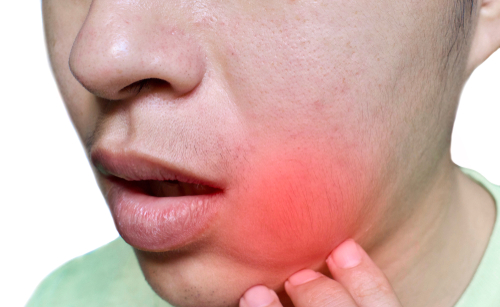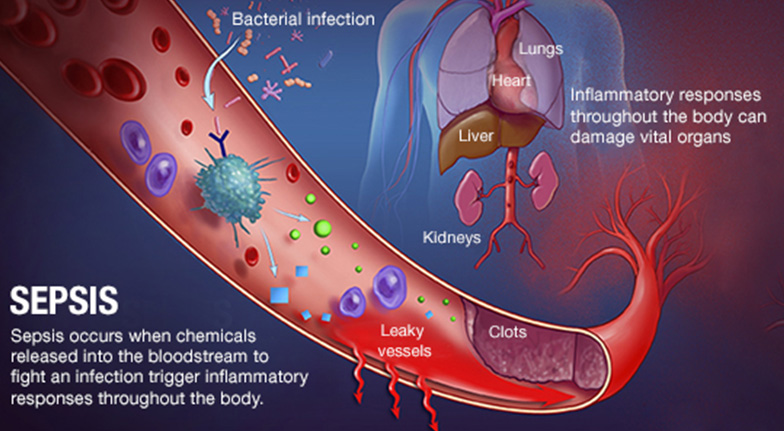Teeth Infection Treatment
How would you treat a tooth boil?
A tooth ulcer can emerge from contaminations that foster inside the tooth. Microorganisms can enter the tooth when it's chipped, broken, or rotting.
When the microscopic organisms arrive at the focal point of the tooth and the tooth becomes contaminated, discharge gathers in the tooth. The discharge in the tooth expands and brings about a toothache.
On the off chance that not treated, the disease could spread to the gums and bone of the mouth. A tooth ulcer ought to be treated by a dental specialist, however a few home cures can ease the distress brought about by the contamination.
At the point when microorganisms gets into the base of a tooth, it can cause a development of discharge. This sort of contamination is called a turned into a boil tooth, or a periapical canker.
These diseases don't disappear all alone, so it's vital to see your dental specialist on the off chance that you assume you have one. On the off chance that it's not treated, it can spread to your jaw or different region of your head or neck.
Tooth Disease Home Consideration
You can do a things to facilitate your side effects:
Assume control over-the-counter pain killers like anti-inflamatory medicine, ibuprofen, or naproxen for the uneasiness.
Attempt to bite on your mouth away from the tooth.
At the point when you clean your teeth, utilize a toothbrush with delicate fibers.
Try not to eat food varieties that are hot or cold.
Put a virus pack on your jaw where your tooth harms.
Utilize a wash of water and salt or weakened hydrogen peroxide.
Finding
As well as looking at your tooth and the region around it, your dental specialist may:
Tap on your teeth. A tooth that has a sore at its root is by and large delicate to contact or strain.
Suggest a X-beam. A X-beam of the hurting tooth can assist with distinguishing a ulcer. Your dental specialist may likewise utilize X-beams to decide if the disease has spread, causing abscesses in different regions.
Suggest a CT filter. On the off chance that the contamination has spread to different regions inside your neck, a CT sweep might be utilized to perceive how serious the disease is.
Treatment
The objective of treatment is to dispose of the contamination. To do this, your dental specialist may:
Open up (etch) and channel the sore. The dental specialist makes a little cut into the boil, permitting the discharge to empty out. The dental specialist then washes the region with salt water (saline). Every so often, a little elastic channel is set to keep the region open for waste while the expanding goes down.
Do a root trench. This can help dispose of the contamination and save your tooth. To do this, your dental specialist dives into your tooth, eliminates the ailing focal tissue (mash) and depletes the boil. The dental specialist then fills and seals the tooth's mash chamber and root trenches. The tooth might be covered with a crown to make it more grounded, particularly in the event that this is a back tooth. In the event that you care for your reestablished tooth appropriately, it can endure forever.
Pull the impacted tooth. On the off chance that the impacted tooth can't be saved, your dental specialist will pull (extricate) the tooth and channel the boil to dispose of the disease.
Endorse anti-microbials. Assuming that the contamination is restricted to the turned into a boil region, you may not require anti-toxins. However, assuming the disease has spread to local teeth, your jaw or different regions, your dental specialist will probably endorse anti-microbials to prevent it from spreading further. Your dental specialist may likewise suggest anti-infection agents on the off chance that you have a debilitated invulnerable framework.
Way of life and home cures
While the area is mending, your dental specialist might prescribe these moves toward assist with facilitating inconvenience:
Wash your mouth with warm salt water
Take non painkillers, like acetaminophen (Tylenol, others) and ibuprofen (Advil, Motrin IB, others), depending on the situation.
Tooth Disease Anticipation
Great dental propensities can assist with keeping your teeth and gums solid:
Brush with fluoride toothpaste two times per day for something like 2 minutes each time.
Try not to wash your mouth with mouthwash or water following brushing - - that can take the defensive toothpaste off your teeth.
Floss no less than once every day to clean between your teeth and under your gums.
Eliminate sweet and bland beverages and food varieties, particularly among dinners and just before bed.
Get another toothbrush each 3 or 4 months or when the fibers on the one you're utilizing look frayed.
Utilize a germicide or fluoride mouth wash to assist with forestalling tooth rot.
Hydrate.
See your dental specialist for ordinary exams.
Who gets tooth contaminations?
You're bound to foster tooth contaminations in the event that you:
Smoke: Smokers are about two times as prone to get tooth contaminations as nonsmokers.
Have dry mouth: Microbes flourish in a mouth with a low measure of spit.
Have unfortunate dental cleanliness: Consistently brushing, flossing and getting dental cleanings lessens microscopic organisms.
Have a debilitated resistant framework: Illnesses or prescriptions can bring down your invulnerable reaction, making it harder to fend off microbes.
Will a tooth contamination disappear all alone?
A tooth contamination won't disappear all alone. Your toothache might stop in the event that a contamination makes the mash inside your tooth pass on. The aggravation stops on the grounds that the nerve isn't working any longer, so you will be unable to feel it.
Be that as it may, the microorganisms will proceed to spread and obliterate encompassing tissue. On the off chance that you have tooth disease side effects, see your dental specialist regardless of whether you never again have torment.
How is a turned into a boil tooth treated?
Objectives of treatment are to kill the contamination and forestall complexities. Treatment choices include:
Entry point and seepage: Your dental specialist makes a little cut (cut) in the sore to deplete the discharge. Once in a while a little elastic channel is set to keep the region open for seepage.
Root trench: This choice assists with disposing of the disease and save your tooth. This normal system eliminates the tooth's contaminated internal mash, and occupies the space with material to forestall another disease. The inward mash is significant when the tooth is developing yet when it's full grown, the tooth can make due without the mash. After the methodology, your tooth ought to have returned to ordinary, however you might require a crown to safeguard the root channel. On the off chance that you care for the reestablished tooth appropriately, it can endure forever.
Tooth extraction: In some cases the tooth can't be saved, and your dental specialist might have to pull or concentrate the tooth permitting discharge to deplete from the attachment.
Anti-microbials: Assuming the contamination is restricted to the turned into a boil region, you numerous not need anti-microbials, yet some of the time your dental specialist might prescribe them to help with your dental treatment. It is critical to be aware, that while this medicine might assist with warding off excess microscopic organisms, it won't dispose of the reason for the contamination, which is the impacted tooth.




Comments
Post a Comment